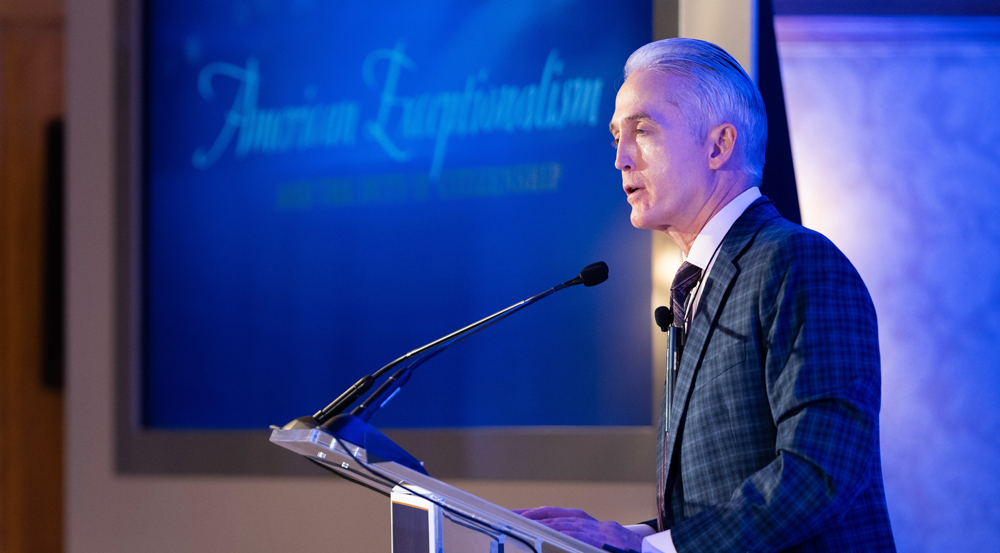A proud native of Greenville, South Carolina, Trey Gowdy is a former federal prosecutor who served as the US representative for South Carolina’s fourth congressional district from 2011 to 2019. Gowdy chaired the United States House Select Committee on Benghazi and employed his famous wit and intellectual rigor in bringing accountability to government, earning the praise of conservatives and the ire of opponents. After leaving Congress, he joined Fox News as a contributor and now hosts Sunday Night in America with Trey Gowdy.
After what some in attendance called the most rollicking intro in the thirteen years of the Bradley Impact Conference, Trey Gowdy launched into a stirring call to those present—laid out in three simple points. The first was to not just tell people what you believe, tell them why you believe it:
Do we still believe that education paves the pathway to prosperity? Do we believe that education is the closest thing to magic that we have in our culture? You can transform not just an individual life, but all the lives that follow in that family with education. We just happen to think [education] decisions should be made closest to the student at the state and local level. Can you make that argument?
The second piece of advice was that we should make our arguments in a winsome, persuasive way.
There was a bumper sticker on the back of a car, back when my wife used to drag me to church. It said, ‘Don’t blame me. I didn’t vote for the idiot.’ . . . If you’re talking to people that already agree with you, that’s great. If you’re trying to convince somebody who did vote the other way last time, calling them an idiot is not the way to do it. Insults don’t work. I mean, they’re great at rallying the base. They’re not great at persuading people.
Third, don’t wait for someone else to do what must be done.
I spent probably the first six months in Congress staring out that side of the plane, where you overlook Washington, and you were just overwhelmed with your own inadequacy. . . But there’s another set of windows on the other side. And you can see these gently rolling hills punctuated with elegant white crosses. And I can’t name a single person there, I don’t think. So who built this country? Who perfected this country? Who’s defended this country? . . . Women and men who found something a little bigger than themselves to serve and sacrifice for. For me.


